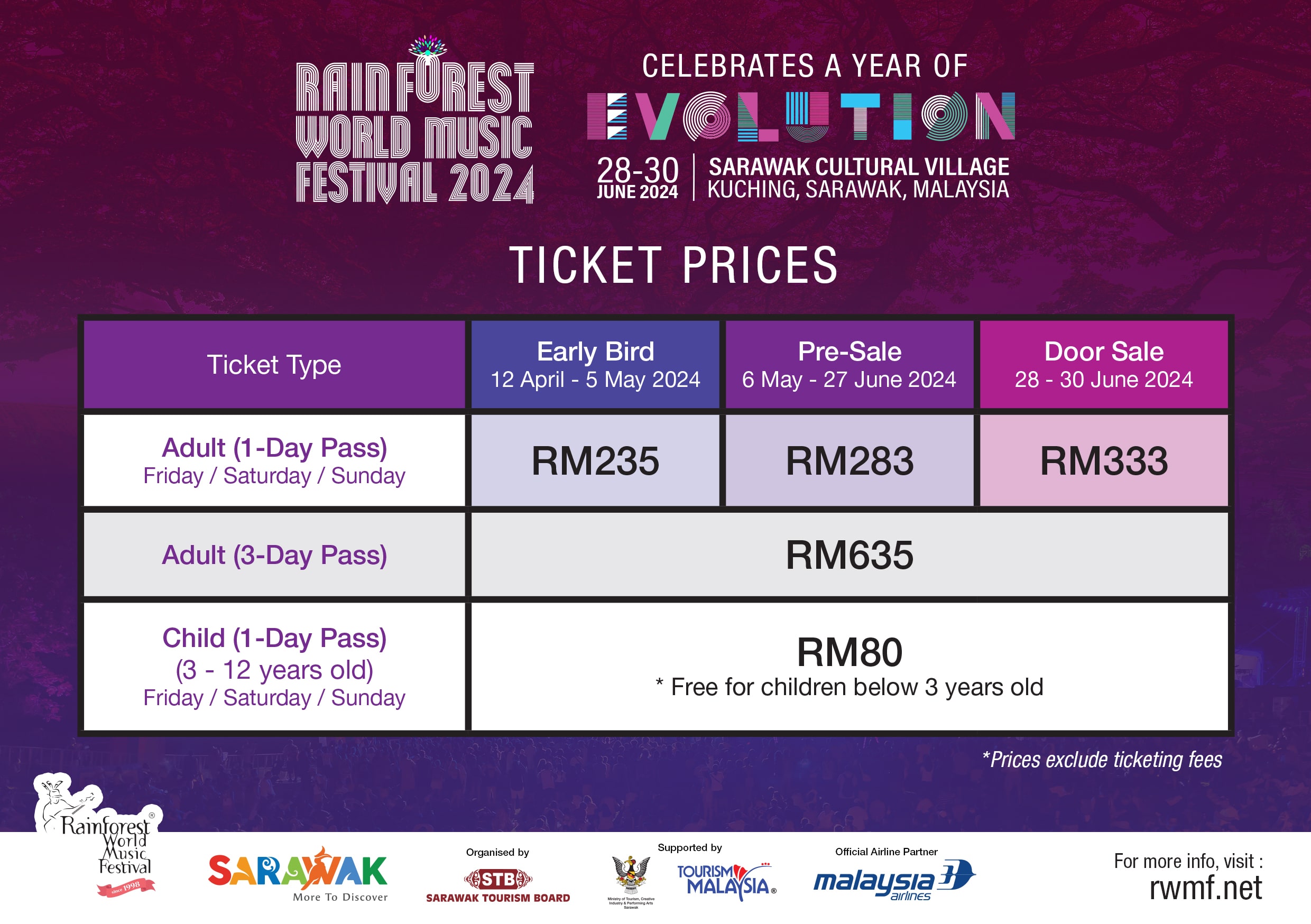The Rainforest World Music Festival (often abbreviated as RWMF) is an annual three-day music festival celebrating the diversity of world music. Held in Kuching, Sarawak, Malaysia, it includes daytime music workshops, cultural and craft displays, food stalls, as well as main-stage evening concerts in an actual rainforest setting, under the dramatic backdrop of Mount Santubong. Starting with only a few hundred people attending in 1998, the Festival has grown to become an internationally recognised music festival with attendance in the tens of thousands, and feature well-known performers from around the world. The Festival feature a wide range of performance styles and genres, from traditional music, to world fusion and contemporary world music.
RWMF 2024
GOES BEYOND THE MUSIC
See You On 28th – 30th June 2024○
See You On 28th – 30th June 2024○
See You On 28th – 30th June 2024○
About Rainforest World Music Festival


RWMF 2024
Goes Beyond The Music

Responsible tourism, and cultural celebration will intersect under the theme “Evolution” in this year’s 27th edition of Rainforest World Music Festival, where the RWMF will truly become a melting pot of cultures, ideologies, and environmental stewardship. Going beyond its traditional role of showcasing the world’s diverse musical traditions, the RWMF will also serve as dynamic platform advocating for sustainable practices in tourism and conservation. It’s poised to be a unique edition of this iconic festival, elevating its significance in promoting both cultural exchange and environmental awareness.
68 International Musicians
63 Local Musicians
21 Acts
15 Countries
12 Million Global Fanbase

THE BEST OF KITARO LIVE
@RWMF@2024 first ever in Kuching, Sarawak

About Sarawak

A kaleidoscope of culture, adventure, nature, food and festivals: is the best description for Sarawak. Sarawak comprises of more than 34 ethnic tribes with their own unique traditions, lifestyles, music and food, while sharing their warm hospitality. Malaysia’s largest state, Sarawak, endowed with some of the oldest rainforests on Earth. Its vast landscape spans over 120,000 sq kms, with towering mountains and cool highlands, jagged limestone formations and mysterious cave systems, winding rivers and quiet beaches; where adventures are waiting to happen. Festivals are hosted throughout the year celebrate the eclectic blend of modern and traditional culture, food, music and religious practices that can be found nowhere else. In Sarawak, there is always ‘More to Discover’.


Rainforest World Music Festival○
Rainforest World Music Festival○
Rainforest World Music Festival○
Rainforest World Music Festival○
Rainforest World Music Festival○
Welcome To The Land of the Hornbills○
Welcome To The Land of the Hornbills○
Welcome To The Land of the Hornbills○
Welcome To The Land of the Hornbills○
Welcome To The Land of the Hornbills○






